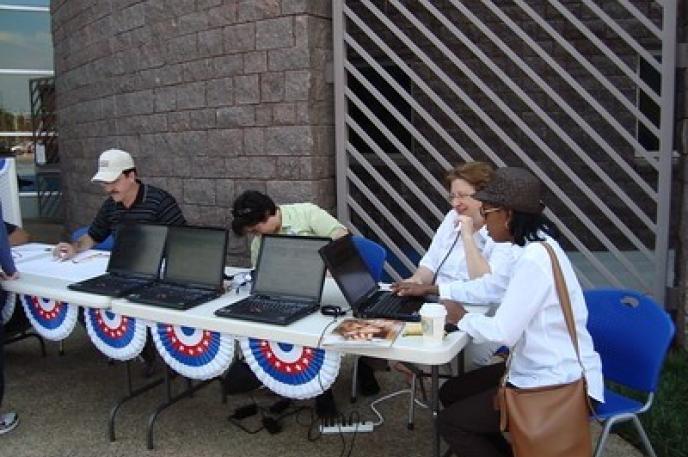
Voting Rights Act is waiting for a reboot
September 15, 2021
“The vote is precious. It is the most powerful, non-violent tool we have in a democratic society, and we must use it.”
That statement came from the late John Robert Lewis and can be attributed as one of his life’s missions. For years, Blacks in Southern states encountered obstacles to vote including poll taxes, literacy tests, intimidation and even violence. As a young man in 1965, Lewis helped lead the student protest march from Selma, Alabama for Black voting rights. The march became particularly newsworthy because the participants were attacked by state troopers while being filmed for television – the attack later became known as “Bloody Sunday.” Lewis was among the injured. Months later, President Lyndon B. Johnson signed the Voting Rights Act of 1965, new legislation to prohibit racial discrimination in voting.
The significance of voting took a different turn in Lewis’s life as he successfully entered politics. The civil rights activist served in the House of Representatives for the 5th congressional district in Georgia from 1987 until he died in 2020. The statesman and Democrat held several leadership roles in his party and received the Presidential Medal of Freedom in 2011 from President Barack Obama.
Today, Lewis’s life and name are making a full circle in the fight for the vote for African-Americans. A new proposed bill to booster the 1965 Voting Rights Act is the John R. Lewis Voting Rights Advancement Act of 2021.
And so, the question may be asked, is history repeating itself here?
Many supporters of the new bill would say the answer is “yes.” In a National Public Radio podcast about the Voting Rights Act of 1965, it reported in 2013 that two Supreme Court decisions weakened it. The Shelby County v. Holder verdict “derailed the Justice Department’s system for preapproving election changes in jurisdictions with a history of discrimination, putting a heavy burden on the federal government to identify any such changes and sue to prevent them from taking effect.” So, states could pass new restrictions on voting.
The second case in Brnovich v. Democratic National Committee impeded the Justice Department further by weakening legal authority to challenge voting laws that discriminate based on race, color and language minority status. Therefore, states were enabled to “raise concerns about voter fraud to justify their election changes without having to prove any such fraud existed.”
According to the Brennan Center for Justice in 2021 alone, 18 states have enacted laws to make voting more difficult. That contrasts to 25 states expanding with 54 voting laws, but the South is well-presented in the first part of the study (not the Carolinas, though).
The public and Congress are following this issue with some interest. USA Today reported that thousands of engaged citizens had joined in marking the 58th anniversary of the March on Washington to demonstrate voting rights on August 28 in select cities. Along with the bill named for Lewis was another proposed voting rights bill to accompany it, the For the People Act, which includes expanding opportunities to register and vote. Regarding Congress in this process, the Democrats in the House have supported the bills but need Republican support in the Senate. That appears dubious, although this fight has always been tough.
To explore the background for this issue, visit this booklist of Library books and streaming videos.
--
This blog was written by Lawrence Turner, librarian at South County Regional.
